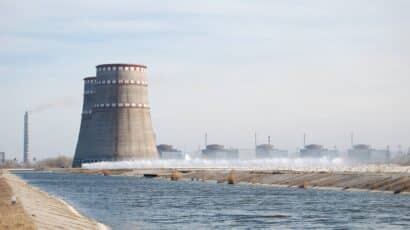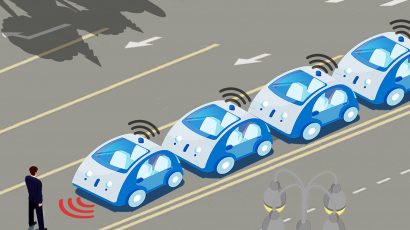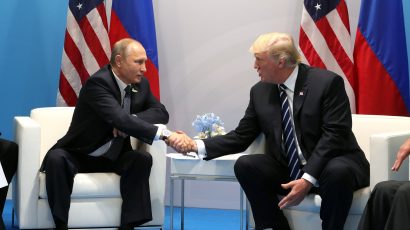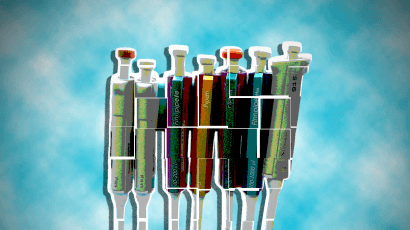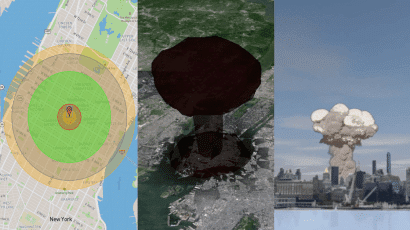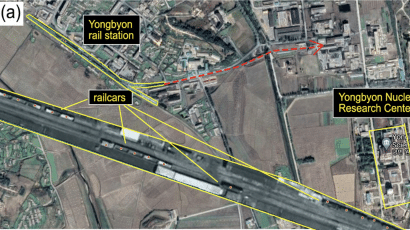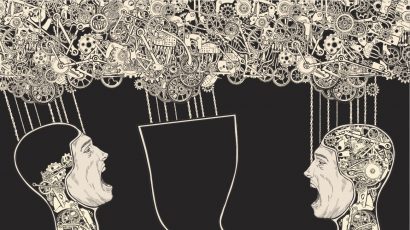Search results for
From the White House to Silicon Valley, many officials have raised concerns that new AI technology could help bioterrorists plan attacks that could unleash new pandemics. A new report suggests that current cutting edge systems wouldn't provide much of an advantage over internet access to would-be terrorists.
Ukrainian dam is destroyed; nuclear plant lives in a ‘grace period’
The damage of a critical dam in Ukraine may spark a "slow-motion disaster" at the nearby Europe's largest nuclear power plant.
Arctic warming, as seen by Alaska’s Native Inupiat
We’re taking on all the risks of these global and environmental changes, said one Native Inupiat whaling captain. “The train wreck is here... we’re just looking at it and trying to figure out: What do we do now? Who’s responsible? Now we have to deal with it.”
Social media regulation and its discontents
Facebook dumped Alex Jones, a notorious conspiracy theorist from its platform last week. While the company did this on its own, countries in Europe are experimenting with tough new governmental regulations on social media--with mixed results.
Overview: nuclear scientists as assassination targets
The disadvantages of assassinating nuclear scientists are many, including the possibility that assassinations will inspire retaliation, reduce the likelihood of a diplomatic solution, and increase the difficulties international regulators face in monitoring a covert nuclear program. In the abstract, moral and legal strictures also weigh against such assassination efforts. As a practical matter, however, if an existential imperative is present, it will likely trump legal and ethical considerations when a nation contemplates assassinating nuclear scientists.
China is speeding up its plutonium recycling programs
The China National Nuclear Corporation is pushing toward the third stage of a plutonium-recycling program by negotiating with France’s nuclear fuel cycle company Orano (formerly Areva) over the purchase of a large commercial reprocessing plant and has proposed construction of large commercial fast-neutron reactors by 2028.
Why Germany won’t build its own nuclear weapons and remains skeptical of a Eurodeterrent
Aggressive Russian policies and the Trump administration’s transactional approach to alliances have put nuclear issues back on the agenda for European governments. Arguments for German acquisition of nuclear weapons have gained no traction among German decision makers, as this would require multiple costly and radical shifts of Berlin’s foreign and security policies.
Best of 2019: Young experts on nuclear weapons, climate change, and disruptive technology
In 2019, young people had something to say about the lack of progress on stabilizing the climate, negotiating with North Korea, and preparing for the arrival of quantum computing.
Road rage against the self-driving machine
More and more self-driving cars are hitting American streets, disrupting life as we know it. Some people are getting angry and disrupting them right back.
A “media mirage”: Russia deployed sophisticated marketing tactics to help Trump win
In a squat, low-slung building in St. Petersburg, Russia, the staff of the Internet Research Agency, a Russian-government associated organization, crafted a doozy of a marketing campaign, one replete with a complex ecosystem of fake social media accounts, links to legitimate websites, and perhaps even a “think tank-style” publication. The goal was much grander than … Continued
Laboratories in the cloud
Cloud labs offer up the tools of genetic engineering to a broad array of people. These automated labs allow scientists to remotely use computers to design experiments. Some biosecurity experts worry about whether they could be misused.
Who will have the AI edge?
A new paper argues that companies like Google and Facebook could outpace militaries when it comes to the science of artificial intelligence.
What would happen if a military group took over Russia’s nuclear arsenal?
Experts explain how the Wagner Group could have taken control of some Russian nuclear weapons and caused strategic instability.
Interview with Alex Wellerstein on NUKEMAP VR
It is no exaggeration to claim that, since it first went online in 2012, Alex Wellerstein’s original NUKEMAP tool has enabled millions of people all over the world to fathom the effects of a nuclear explosion. Now, Wellerstein is working on a new project that combines the information base of NUKEMAP with the immersive first-person experience of virtual reality.
Machine learning improves satellite imagery analysis of North Korean nuclear activity
Much of the available data on nuclear activities in North Korea comes from earth observation satellites. But there's a drawback: with increased coverage and higher resolution, analysts face challenges in systematically analyzing image datasets on a large scale. In this case study, we tested automated analysis of over 800 satellite images that tracked vehicular traffic—as well as international trade—at border crossings between China and North Korea.
Artificial Stupidity
Dumbing down AI might be the best way to keep it from making humans obsolete. Doesn't that feel good?
‘AI Godfather’ Yoshua Bengio: We need a humanity defense organization
In this interview, AI godfather Yoshua Bengio discusses attention-grabbing headlines about AI, taboos among AI researchers, and why top AI researchers may disagree about the risks AI may pose to humanity.
Smart devices, cell phone cameras, social shaming. and the loss of the right to a private self: Interview with Michel Paradis
What needs to be done — in the form of rules, laws, agreements, and technological fixes put in place by policymakers on an international level — so that democracies remain democracies.
US may not join Macron cyber pact
French President Emmanuel Macron, himself the target of a pre-election hack, went on the offensive this week against the thieves, hackers, and foreign agents who use the internet to attack infrastructure, steal trade secrets, and tip elections. He got representatives of dozens of countries, companies, and nongovernmental organizations to sign onto efforts designed to make … Continued
The United States has learned the wrong lessons from previous diplomacy with North Korea
Physical steps to change North Korea’s relationship with the West may be key to rolling back their nuclear weapons program.

